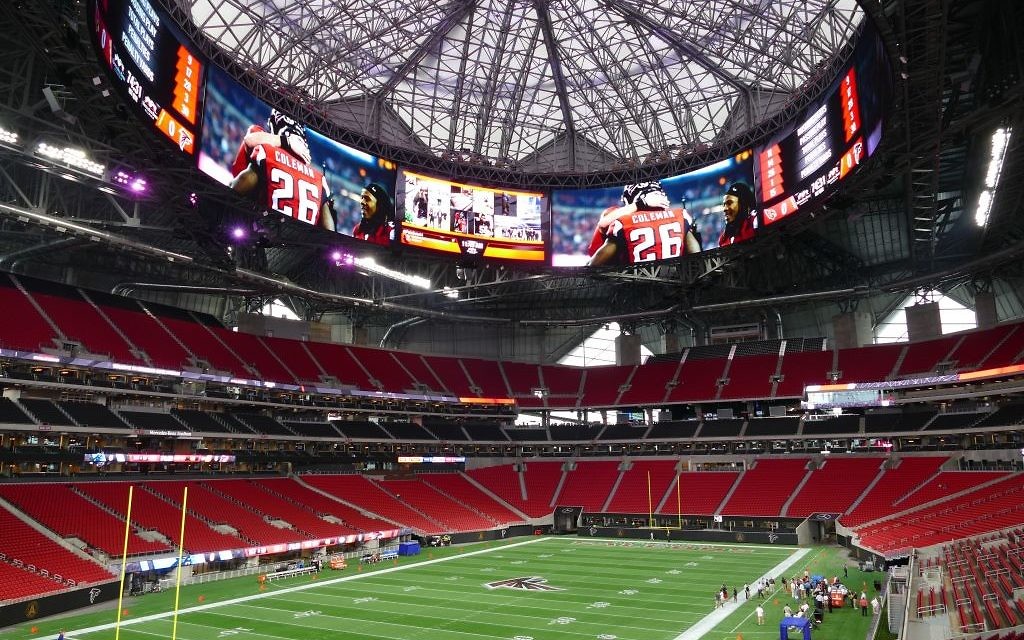Redemption in Red and Black
After Atlanta's loss in Super Bowl LI, who would have thought redemption could be so close only 11 months later?
Less than a year ago Atlanta football fans went through the exhilarating highs and excruciating lows that will forever be encapsulates as “28-3,” the lead the Falcons failed to hold in the Super Bowl on Feb. 3. Who would have thought redemption could be so close only 11 months later?
I’m not talking about the Falcons themselves, although congratulations to Arthur Blank’s team for winning its way back into the playoffs. I don’t think they’ll go much farther than the Los Angeles Coliseum, where they’ll play the Rams on Saturday night, Jan. 6, but I’m a lousy prognosticator.
That’s pro football anyway. We flirt with it every weekend, but for most of us in the South, college football has our hearts. Monday night, Jan. 8, Atlanta’s Mercedes-Benz Stadium will play host to a game that means more to many of us than next month’s Super Bowl: the College Football Playoff national championship game between the Georgia Bulldogs and the Alabama Crimson Tide.
Get The AJT Newsletter by email and never miss our top stories Free Sign Up
Both teams are playing for more than a national title.
The Tide seeks redemption for last year’s last-second championship loss to Clemson. Alabama got revenge with its semifinal win against Clemson in the Sugar Bowl, but nothing less than finishing No. 1 when the season ends is acceptable for Bama.
Georgia doesn’t have the burden of such perennial expectations. Alabama claims 16 football national championships, most recently winning two years ago; Georgia has two, in the 1942 and 1980 seasons.
Georgia isn’t technically an Atlanta team, but this is where its fan base lives. This is where it will play for the championship. And this is where it runs into the specter of a city’s sorry history of near-misses, not-so-near-misses and only one major professional championship (the 1995 Braves). After Super Bowl LI, Atlanta has never needed an athletic lift so badly.
It’s a shame to put any of that on this Dawgs team, though. At the start of the season, few fans expected UGA to play for the championship, especially with freshman Jake Fromm at quarterback.
Already in Kirby Smart’s second year as coach, Georgia has won an SEC title, embarrassed rivals Florida and Georgia Tech, and pulled off the biggest comeback in the highest-scoring Rose Bowl in history. If ever second-best shouldn’t be a disappointment, it’s now. But after that amazing 54-48, double-overtime victory on New Year’s Day, anything less than a championship will feel like another crushing Atlanta failure.
Within the Jewish community, we can be thankful that the championship game is on a Monday night and not college football’s traditional Saturday afternoon. I imagine that one of the toughest parts of becoming shomer Shabbos in the Southeast would be the loss of college football Saturdays.
It’s a big enough deal that back in 2005 an effort was made to enable observant UGA students to attend Saturday games without carrying tickets. Monday night, anyone who cares to spend $3,000 or so per ticket can go to the game, free of religious concerns.
There’s one interesting Jewish twist on the championship involving a team that won’t be represented in the big game: the University of Central Florida, which probably has the largest Jewish student population in America. The Knights came to Atlanta on New Year’s Day for the Peach Bowl and completed a perfect 13-0 year by beating Auburn, the only team that beat Alabama or Georgia this season.
Who could blame 6,000-plus Jewish undergraduates in Orlando for declaring their team the unofficial national champion?





comments